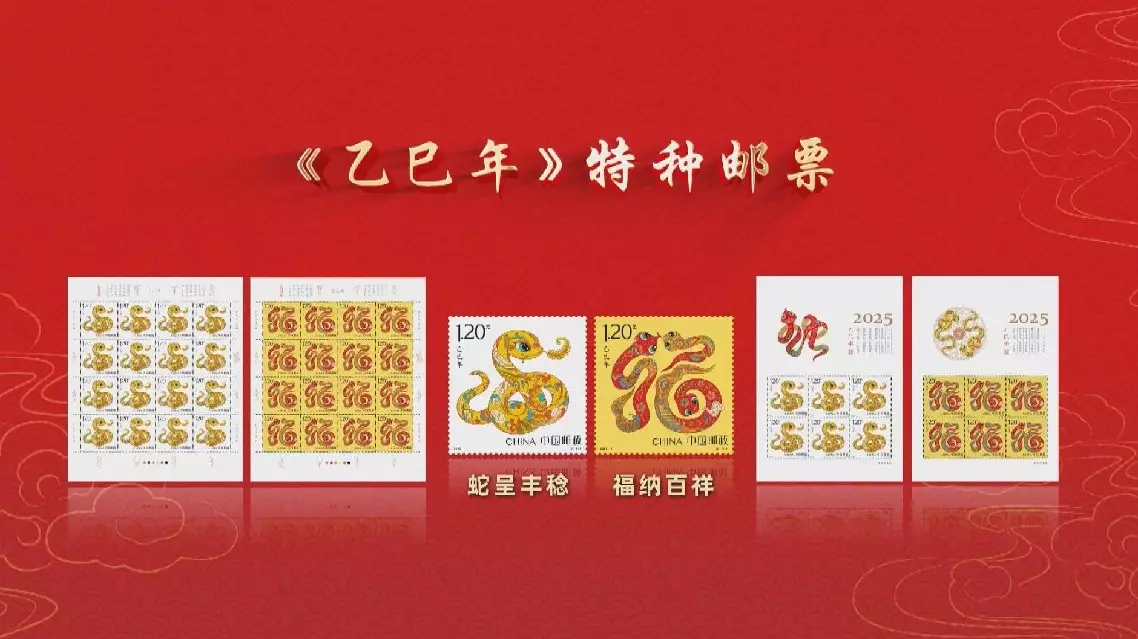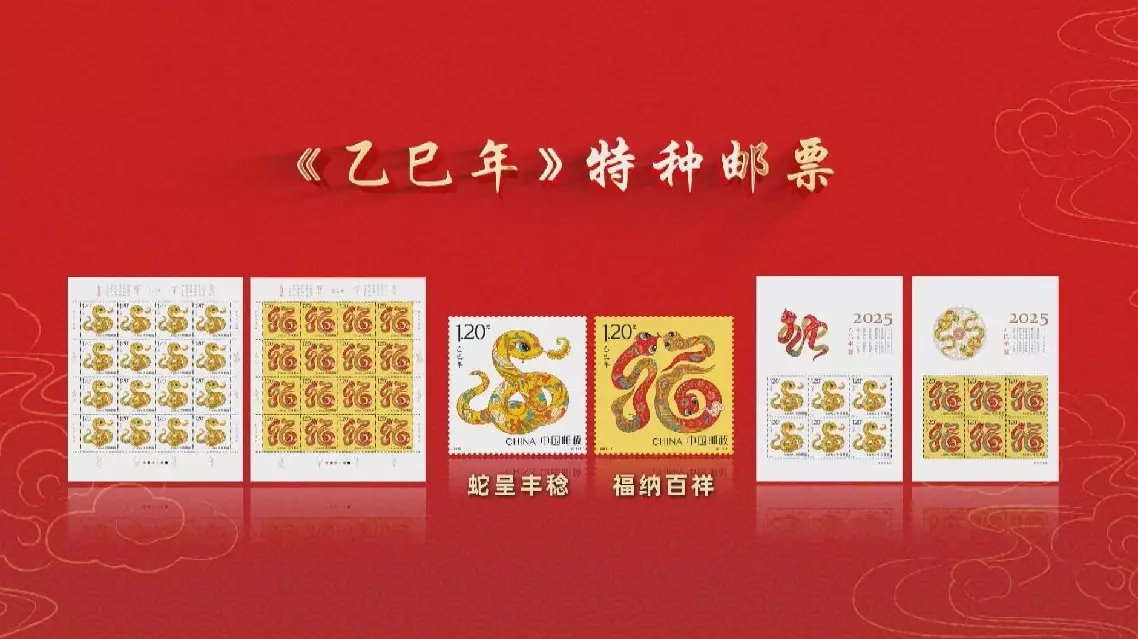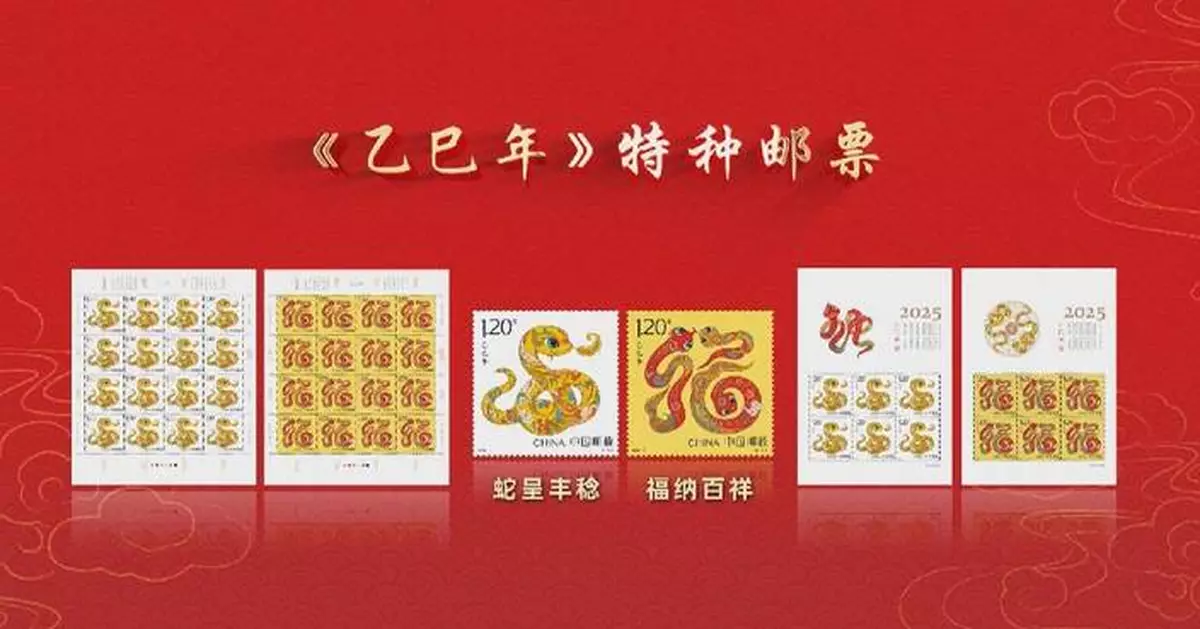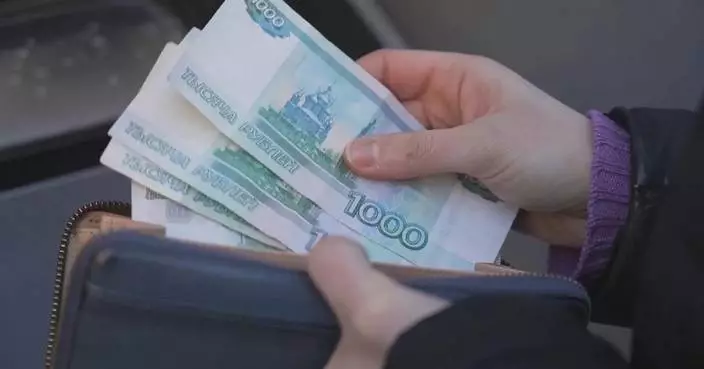China Post on Sunday issued a set of two special stamps to celebrate the upcoming Chinese zodiac Year of the Snake.
This set of stamps, drawing inspiration from murals in the Mogao Grottoes, a UNESCO World Heritage Site in Dunhuang, northwest China's Gansu Province, and traditional folk customs, combines the image of snake with auspicious meanings. It not only embodies the unique charm of zodiac culture, but also demonstrates people's wisdom.
"The most critical challenge is how to highlight the key elements while avoiding the more intimidating aspects. It's a very difficult task. Our goal is to create a comprehensive design that integrates Chinese characters, the Chinese zodiac, and Dunhuang murals," said Pan Hu, one of the designers who is now a doctoral candidate at the Academy of Arts and Design, Tsinghua University.
"The snake is adorned with images of auspicious clouds and Ruyi, symbolizing endless good fortune and best wishes. Additionally, its gold and red colors represent the joy of our Spring Festival celebrations," said Zhang Wang, one of the designers and director of the Department of Oriental Art of Nankai University, specializing in traditional Chinese painting.
Also on Sunday, China Post, Hongkong Post and Macao Post and Telecommunications Bureau jointly issued the "Year of the Snake" souvenir sheet.
Since 1980, China has issued four rounds of zodiac stamps including those for the Year of the Snake in 1989, 2001 and 2013.
The Chinese Zodiac is represented by 12 animals to record the years and reflect people's attributes, including the rat, ox, tiger, rabbit, dragon, snake, horse, sheep, monkey, rooster, dog and pig.

China issues special stamps marking Year of the Snake

China issues special stamps marking Year of the Snake




















































